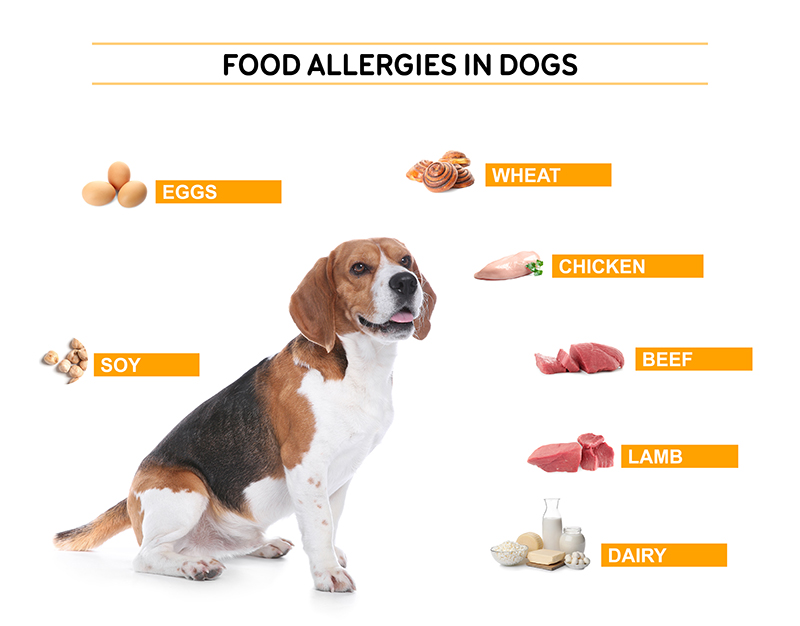Healthy
Help – I think my dog has a food allergy!
Food allergies are not common in dogs, but they do occur and here we’ll take a look at what you can do to help.
Whether it is all year round skin issues which don’t relate to the season or tummy issues with loose stools the problem is, there is no easy way to diagnose them. You’ll have seen testing kits that you can buy and send off samples of saliva to a laboratory for analysis but the problem with them is that they are not very accurate and can be an expensive waste of money.
As with us humans, the only way to get to the bottom of whether issues are caused by diet is to do an elimination diet and to be honest, they are not easy to do at all. They need to be done for the right length of time – for skin allergies that would be 8-12 weeks and 3-4 weeks for digestive issues. Of course, if there is no improvement after this amount of time on a carefully controlled diet then you know it’s not a food allergy.
So what are the options?
Novel Proteins & Carbohydrates
Protein is the component in food which triggers food allergy.
A novel protein is one that your dog has not eaten before, therefore it will not cause an allergic reaction. BUT is important to consider not only the main protein source (the meat or fish) but also carbohydrates and other ingredients because foods like rice, peas, potatoes, soya and brewer’s yeast all contain protein as well.
This is tricky if you have re-homed a dog and you do not have any details of what they have eaten in the past so a novel ingredient diet is probably not the best approach in this instance.
The other issue with these type of diets is that proteins from different sources may react with each other.
Hydrolyzed (elemental diets)
Whole proteins are made up of chains of amino acids. Allergy is thought to occur when proteins are absorbed whole across the wall of the small intestine. The body thinks they are an invading substance and launches an immune response against them and this may be seen as skin or digestive issues. Hydrolysed diets are where the proteins are broken down into either shorter chains or into their amino acids (extensively hydrolyzed) and so the immune system cannot recognize them. Most vets who specialize in skin conditions recommend extensively hydrolyzed diets because the proteins cannot be broken down any further so there is much less chance of an allergic reaction.
Which one?
It’s important to speak to your vet about which type would be most appropriate for your dog as these diets can very widely in terms of nutritional composition and so the individual requirements of the dog need to be considered.
These diets are not suitable for growing puppies.
Don’t forget to consider treats, dental sticks, toothpaste, dietary supplements as well because if they are still included in the diet, the whole trial could be a waste of time and effort.
Most importantly, keep a note of symptoms and any accidents where your dog eats something they shouldn’t!
By doing the trial correctly, you’ll only need to do it once and it is a short term thing which may just be the first step in helping your dog feel better in the long term.



